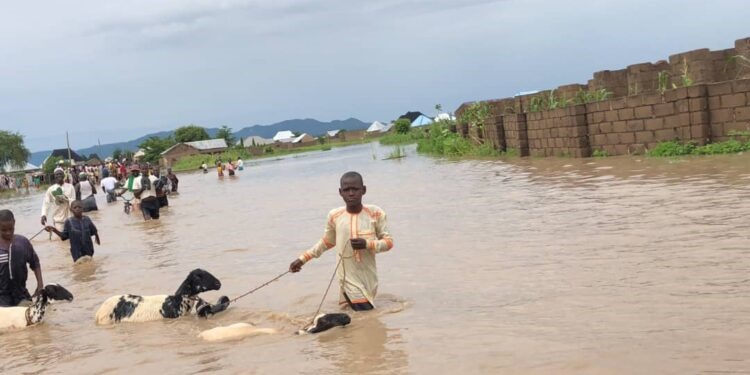The UN Children’s Fund (UNICEF) in collaboration with the National Orientation Agency (NOA) on Thursday, April 20, 2023, trained volunteers and health educators in Niger State to respond to emergency in terms of flooding in communities.

The training – “Training of Community Facilitators in Emergency Preparedness” – in Minna, the state capital, aimed at preparing community facilitators for engagements with identified communities that had been impacted or would likely be impacted by flooding, officilas said.
Mrs Chinwe Ezeife, Nutrition Specialist, UNICEF Kaduna Field Office, noted that women, children and elderly were usually worst hit during flooding emergency.
“People from riverine communities, especially, are hard-hit during flooding.
“This situation makes it necessary for UNICEF to intervene by bringing together relevant stakeholders to brainstorm on how to reduce the negative effect of flood disaster.
“The communication gap between relevant agencies within the areas affected by flooding is responsible for the annual disaster over the years,” she said.
She appealed to government at all levels to take proactive measures before the rain set in to save lives and property.
In his welcome address, Alhaji Yahaya Gbongbo, Director, NOA, Niger, said that the volunteers were to conduct 400 house-to-house meetings to discuss protection during emergencies with members of communities.
Gbongbo said that the efforts was to strengthen community facilitators with skill for engaging communities in conversation in resilience building.
He added that it was also to provide facilitators with a tool to guide their conversations with communities and prepare them to embrace and use communities’ view in the design and implementation of a support plan among others.
Malam Salihu Garba, the Niger State Emergency Management Agency (NSEMA) representative, said that the agency had immediately swung into action on receiving the annual predictions from NEMA .
Garba said that the agency had met with relevant stakeholders from the state and local government levels to come up with ways to mitigate flood disaster.
Participants at the training were drawn from Mokwa, Edati, Lavun, Gbako, Agaie, Katcha, Lapai, Bosso, Shiroro, Rafi, Wushishi, Mashegu and Borgu local governments.
In their separate remarks, the participants appreciated UNICEF and NOA for the training, saying that the training had further broadened their understanding on how to engage with community members to discuss ways to mitigate impact of flooding.
By Rita Iliya
